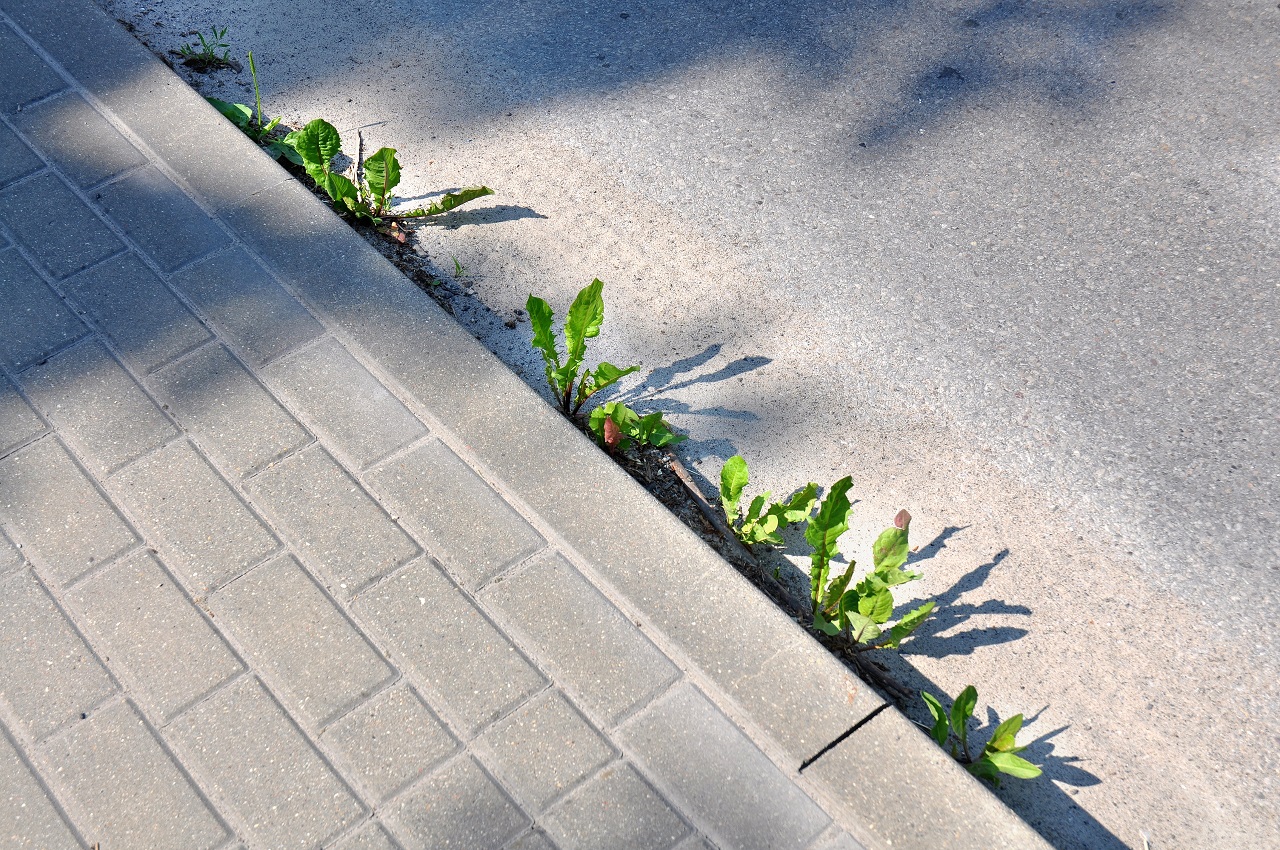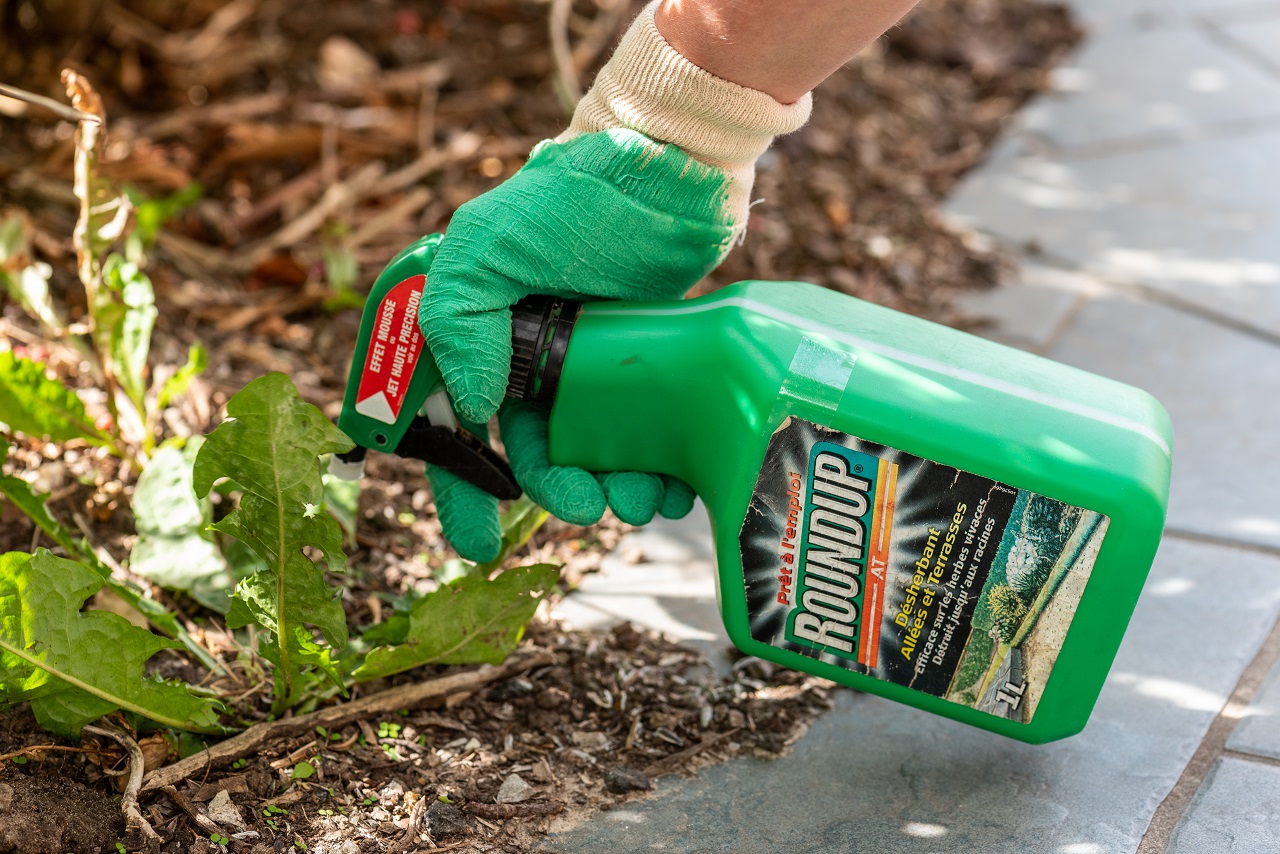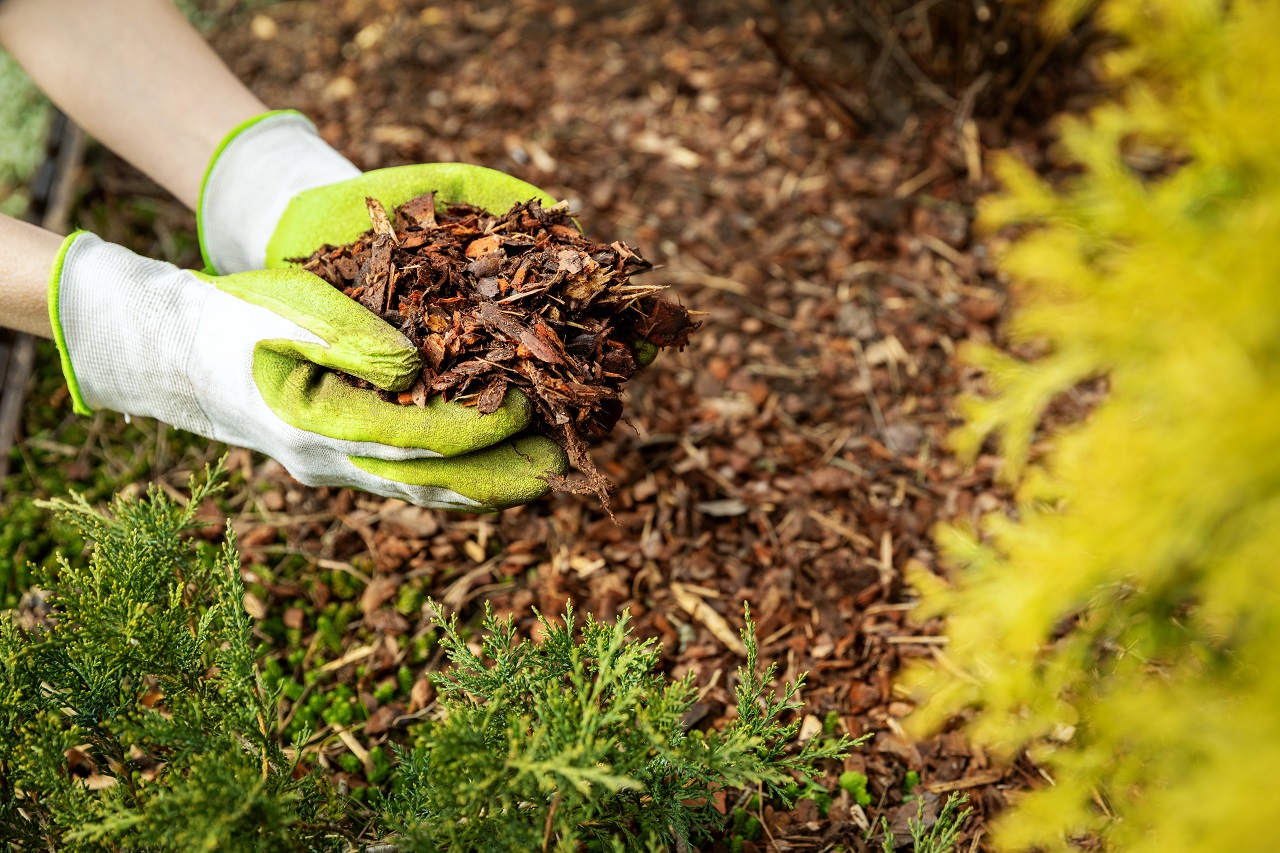While it’s remarkably rewarding to have a garden, it also brings with it a great deal of work.
Firstly, you’ll need to make sure you water your lawn and flowers regularly, and you’ll also need to keep it mowed and neatly edged.
With all that taken care of, you should also aerate your lawn once a year. Learn why, when, and how to aerate your grass right here.
Even assuming you take care of all this maintenance, though, there’s one more to thing to worry about: weeds.
Luckily, you can control weeds in your garden without needing to rely on chemical herbicides. Before we show you how to do that using a variety of beginner-friendly methods, what’s so bad about chemical weed killers in the first place?
I. What’s The Problem with Chemical Weed Killers?
There are many cleaner and safer options than chemical herbicides to tackle invasive weeds on your lawn.
While you may initially find organic approaches to pest control take a bit more effort and patience, the benefits significantly outweigh the drawbacks, and you’ll also sidestep the negative health outcomes associated with chemical herbicides.
Roundup is one of the most common broad-spectrum systemic herbicides, and it’s used the world over in enormous volumes. While Roundup kills weeds efficiently, it also kills most other plants it contacts.
The active herbicidal ingredient features in Roundup is glyphosate. Many GMO crops are designed to resist glyphosate, meaning farmers can spray crops with Roundup, killing all the weeds but leaving the food crop untouched. The unfortunate by-product of this is the food crops are plastered with this chemical herbicide. Packaged foods like bread and corn chips are often riddled with the residue of these herbicides.
Luckily, you don’t need to subject yourself to this if your home veggie garden is overrun by weeds. We’ll get right down to business now with no less than 10 different ways to cull weeds without reaching for Roundup.
II. 10 Ways to Control Weeds Without Chemicals
- Hand digging
- Mulching
- Flame weeding
- Boiling water
- Salt and vinegar
- Corn gluten meal
- Regulate food and water
- Solarize
- Give the weeds some competition
- Minimize digging and tilling
1) Hand digging
Whenever you spot weeds growing, use a shovel or hoe to spot-treat them and manually remove them.
While you’ll find many of these weeds simply grow back, all you need to do is dig them out again.
If you consistently weed your garden manually, you’ll dramatically reduce the weed population over time. It takes some patience and persistence, but that’s all part of the fun of gardening after all.
When you dig young weeds out, they won’t get the opportunity to seed and reproduce. Also, if you routinely dig up weeds like thistles and dandelions, this will weaken the root and ultimately kill the weeds.
2) Mulching
Using an extra layer of organic matter to cover your soil can help to stifle weeds, while at the same time minimizing the chance that new seeds will germinate.
Use any of the following to mulch:
- Newspaper
- Cardboard
- Grass clippings
- Compost
- Wood chips
- Bark
- Straw
- Organic matter
Don’t use hay, though, as this often carries unwanted seeds.
3) Flame weeding
Flame weeding involves torching weeds briefly with a flame. This serves the weeds a fatal blow.
This type of weeder normally comes hooked up to a propane tank, just like you’d use for a gas BBQ.
When you flame weeds, you’ll only be killing the parts visible above the ground, and you won’t be doing anything to address the roots of these weeds. You’re likely to need to attack the same weeds a few times before you see them off using this method.
Always work in line with the instructions on your flame weeder and refrain from flame weeding in hot weather when there is more risk of unwittingly starting a fire.
4) Boiling water
An old but faithful method of killing weeds is to douse them with boiling water. Upend the kettle all over the weeds, especially those poking up between the cracks of your path. As the water runs off, it will cool and you should avoid damaging any other plants.
5) Salt and vinegar
You can also use regular 5% household vinegar as a homemade weed killing remedy. If you mix this up with some salt and some dish detergent, you’ll find this method even more effective.
All you need to do is mix up 1 gallon of regular white vinegar with some table salt (1 cup) and dish detergent (1 tablespoon). Decant the mixture into a plastic bottle and spray it directly onto any weeds you want dead.
6) Corn gluten meal
Corn gluten meal comes about as a by-product of the corn milling process. It has been shown to help prevent the seeds of weeds from germinating.
You can apply some corn gluten meal to your lawn, or to any other areas of your garden. It’s completely non-toxic to animals, so you’ll have no concerns if you have pets at home.
7) Regulate food and water
When you load your garden with nutrients and moisture, this will help the plants thrive, but will also encourage weeds to grow.
Limit your plants to the irrigation and fertilizer they need. With perennial plants and well-established trees, you’ll get away without too much extra fertilizer and irrigation. Use a light touch and keep weeds at bay.
8) Solarize
If you cover an area of weeds with some heavy plastic, this is known as solarizing. The method works best when you have full sun and the heat can collect under the sheet. As this happens, the weeds are literally baked.
Once in place, leave the sheet covering the weeds for anywhere from 4 to 6 weeks.
9) Give the weeds some competition
If weeds have no space to grow, you won’t be menaced by them cropping up.
Plant some dense perennial plants and ground covers in your ornamental beds. Shrubs and trees have heavy root systems that can stop weeds from growing below.
10) Minimize digging and tilling
Every time you turn over the soil in your garden, this will encourage new weed seeds up to the surface.
To avoid this, only till your garden when absolutely essential. As an example, if you are seeding some veggies, you only need to dig down as far as necessary to plant the seeds rather than extensively digging and tilling the whole bed. As an added kicker, this method can also improve the fertility and structure of your soil, so why not give the no-till method a try?
III. Conclusion
If you’re battling weeds in your garden and you’re reluctant to resort to Roundup, we don’t blame you. With the minimum of effort you can fight back against common weeds without resorting to chemicals.
We have plenty more handy guides like today’s coming your way over the coming weeks, so make sure you bookmark Wild River Country and be sure to pop back soon. We update our content daily.




